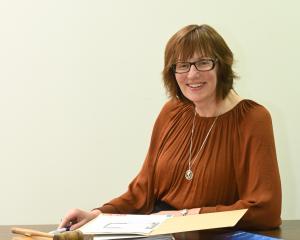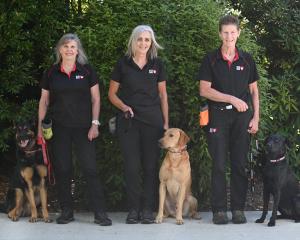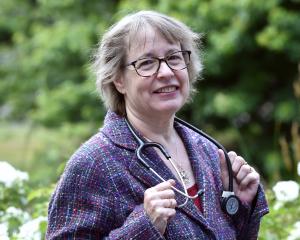Former refugees in Dunedin are having trouble gaining access to funded counselling, and this has emerged as a "real hole" in their support system, a Dunedin GP says.

Since Dunedin became a refugee centre last April, about 130 have arrived. The city will receive about 175 former refugees every year. So far, almost all are from Syria.
Dr Prue Murdoch, of Amity Health Centre, said she had tried to refer refugees for counselling but they had not met criteria.
"Access to counselling is the big unmet need. At the moment there doesn’t seem to be an avenue [for refugees].
"Unless they’ve got a significant mental health illness and we put them through [Southern District Health Board] mental health, getting counselling, particularly for post-traumatic stress, is difficult.
"I’ve had several people turned away. I’ve done referrals and they’ve been sent back by [SDHB] mental health saying this doesn’t qualify for our psychologist."
Dr Murdoch said the practice was being "cautious" about how many former refugee patients it accepted because of the cost of providing care.
"The consultations take longer, so you don’t get reimbursed for the time that you spend, so we carry that.
"Most of us feel that it’s something that we want to contribute to, and is worth it to invest the time," Dr Murdoch said.
The former refugees were receiving free GP appointments through a voucher scheme but Dunedin’s largest practice, Mornington Health Centre, is not happy with the funding and has accepted no refugee patients yet.
Practice manager Jo Rowe said the money offered by WellSouth PHO was not enough.
Mornington would accept former refugees if they enrolled and paid like other patients, but it would not accept the vouchers.
The practice’s board was to discuss the matter soon at a meeting, she said.
Mrs Rowe was also concerned about the lack of a plan to deal with the refugees’ mental health needs.
"They are refugees from a war-torn country that was peaceful [before the conflict]. They’re like you and I being chucked into a different country and expected to just kind of get on with it."
Mrs Rowe said timely counselling could prevent the need for more serious intervention, such as inpatient stays.
WellSouth Maori health director Peter Ellison and WellSouth outreach co-ordinator Liz McColl played down the issues when interviewed jointly. Most practices were happy to take refugee patients, Mrs McColl said.
Mornington was the only practice to complain about the funding.
Another Dunedin practice had closed books and could not take more patients, and practices needed to employ female GPs in order to accept refugee patients.
Mr Ellison said the health system already supported many high-needs patients.
"We have lots of high-needs patients; [refugees] are just another one."
The PHO has been covering the cost of the refugee health vouchers out of its own coffers while a refugee health funding package is finalised between Southern District Health Board and the Ministry of Health.
When confirmed, the funding will include provision for mental health but will run only until June 30, after which the PHO will have to seek more.
Mrs McColl said the mental health issues of some former refugees might only became apparent after a couple of years.
There was not heavy demand among the former refugees for mental health services at present, the pair said.
Red Cross southern humanitarian services manager Sue Price said she was not aware of any problems with the provision of health services for refugees.
"I can’t comment because I don’t work directly with the families."
Ms Price said she had been told the mental health needs of the refugees in Dunedin were not as significant as had been expected.












